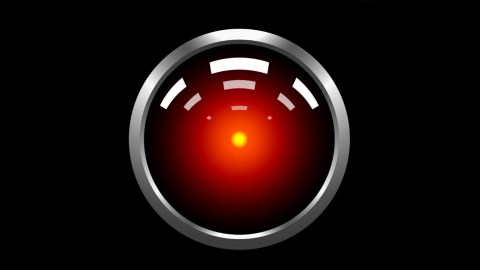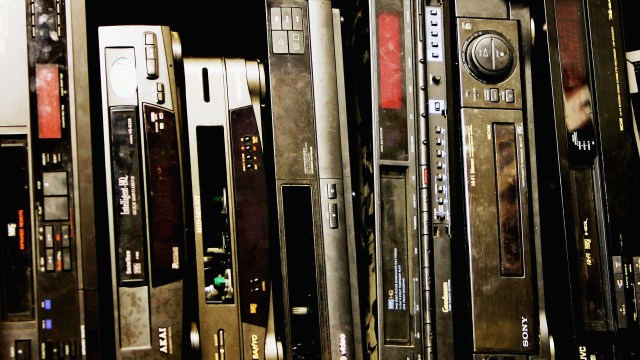Neil deGrasse Tyson on “2001: A Space Odyssey” — An Accurate Vision of Our World?

Dave, stop. Image source: Wikipedia
The first time this happened to a lot of us was when 1984 came and went without a discernible Big Brother (except for that Macintosh commercial): We’d apparently avoidedGeorge Orwell’s dystopian future, unless you count “Say, Say, Say” by Paul McCartney and Michael Jackson — which rang in the year at the top of charts — or Madonna’s “Like a Virgin” — which closed it out — as dystopian. I guess a case could be made.
On January 1 of 2001, Neil DeGrasse Tyson published an OpEd in the New York Timestaking stock of how clearly, or not, Arthur C. Clarke had seen the future in his book2001 and Stanley Kubrick’s classic 1968 film by the same name. After all, the future had arrived. Was it— and especially space exploration — anything like what the movie predicted?
Could an iPhone take HAL in a game of chess? Who could ever have guessed we’d have such powerful computers in our pockets, or that they’d ultimately be upstaged by our selfie cameras? We admit we would have to give HAL the edge over Siri or Cortana, but in 1968, it hadn’t yet occurred to us that using probes was a more sensible way to visit faraway places like, say, Jupiter, which sounds like a routine destination for us, the way deGrasse Tyson tells it. So duh on our past future selves for that.
It stands to reason that the longer you live, the more of these “futures” you see come and go. (My teenage daughter and I just finished binge-watching Fringe, where 2015 was the year in which the world was invaded by bald jerks from the future.) Three years to Blade Runner!
So we’re doing okay, at least by these sci-fi standards. Almost makes you want to party like it’s 1999.





